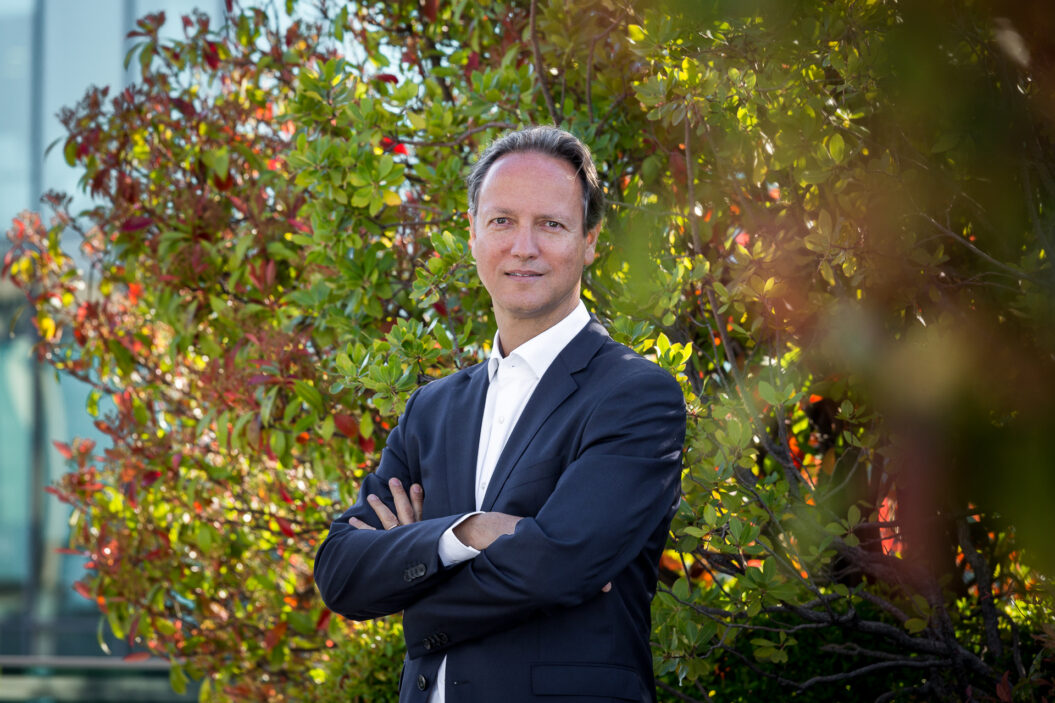“Competitive advantage comes from consistent execution”
Portuguese people who stand out abroad are helping to find out where business opportunities are and what kind of companies and activities the country can attract. An initiative that brings together Negócios and the Portuguese Diaspora Council.
1. WHAT LED YOU TO LEAVE PORTUGAL?
Let’s say that things happened gradually: first I started with international leadership roles, based in Portugal, which exposed me to new realities in other countries. At a certain point, as a result of a reorganization in the company where I worked, the possibility of going to Italy arose and, as a family, we ended up deciding to embrace this challenge. I think there is a limit beyond which, always being away from home, affects family stability and that is why it is preferable to move the whole family, so that we can spend more time together. After our experience in Milan, we moved to Barcelona, then Lisbon and then Madrid, where we have lived for 10 years.
2. WHAT ADVANTAGES OR DISADVANTAGES DOES BEING PORTUGUESE BRING YOU?
I would say that it mostly brought disadvantages, as at the time having the Portuguese brand did not contribute to our professional image, on the contrary. I felt this mainly in Spain, France and Germany. At the time, I noticed that someone looked down on a Portuguese being the boss, and here comes the only advantage I felt: those who look down make mistakes, which sometimes made it easier for me to demonstrate value and accelerate certain decisions or transformations that I had to lead.
3. WHAT OBSTACLES DID YOU HAVE TO OVERCOME AND HOW DID YOU DO IT?
Firstly, I believe that obstacles make us stronger and more resilient, both ourselves and our families. There were family obstacles – like feeling like we made a mistake in choosing the school for our children in a certain country, or worrying about how the whole family is adapting to their new life – while we had to be focused on a new and demanding job. In professional terms too, because, in my case, I was in a country (Italy) where I didn’t speak the language, had no contacts outside the company, nor knew the Economy. After 3 months, I was already speaking Italian with the team and clients and we were all well adapted to the local culture and its habits.
Another more difficult moment was when we were in Barcelona: my contract there was ending and the Family grew from 2 to 4 children. We decided to return to Portugal, as we had a little more help, and I ended up taking on new international roles that required me to travel a lot. A few years later, we all moved to Madrid, so that we could be together, as I took over the general management of Spain.
4. WHAT DO YOU ADMIRE MOST ABOUT THE COUNTRY WHERE YOU ARE?
Let’s say that Spain, where we live now, is a country with several “countries” inside and with many different realities, which means that what we see as good in one region like Madrid does not happen in others. But I can say that I admire Spanish entrepreneurship and the way they use their characteristic “no pasa nada” to overcome obstacles and move forward: they are excellent commercials! Unlike the Portuguese, who is a perfectionist – something excellent in terms of doing things with quality, but who argues until exhaustion and does not advance or produce enough.
5. WHAT DO YOU MOST ADMIRE ABOUT THE COMPANY OR ORGANIZATION WHERE YOU WORK?
I spent 27 years at SAP, a German software multinational, which I have just left, still serving on its advisory board. It is the largest European technology company, and I admire that a European company continues to outperform the main technology
players, who are all American, including in relation to the management culture, which I believe is closer to people. An American company would never have invested in Portugal and in localizing its solutions, as SAP did at the time.
6. WHAT RECOMMENDATIONS WOULD YOU GIVE TO PORTUGAL AND ITS ENTREPRENEURS AND MANAGERS?
Let leaders and managers assume that they are always responsible for the state of things we have today, for better or for worse. Not entering the field of opinions, but looking coldly at the numbers, we see that the country’s management can be significantly improved, and that, for this, it is necessary to have experienced politicians and managers in the international job market. There must be a non-partisan system that guarantees meritocracy in hiring instead of using the so-called “boys for jobs”.
I would tell entrepreneurs and managers what I learned from those who are most successful: that attracting the best talent (with adequate compensation) and investing in technology has given them reasons to be happy. Ambition, talent and constant technology/innovation are the engines for increasing companies’ productivity and global competitiveness.
I would also leave a message for medium and large companies that internationalize to support and take with them other Portuguese supplier companies, something that our Spanish friends do very well, creating an international support ecosystem.
7. IN WHICH SECTORS OF THE COUNTRY WHERE YOU LIVE COULD PORTUGUESE COMPANIES FIND CUSTOMERS?
I would say in all sectors without exception! A Portuguese company with quality products or solutions, and the ability to invest, enters any market.
8. IN WHICH SECTORS IN PORTUGAL COULD COMPANIES FROM THE COUNTRY WHERE YOU LIVE WANT TO INVEST?
There are two types of successful businesses: those with a good profit margin and those with a large sales volume. Unfortunately, given the size of our country, there are not many areas with high volume. Therefore, it is necessary to identify areas with good margins and create attractive conditions for foreign investment. For example, in Information Technologies (we have excellent resources that are abandoning Portugal), Energy/Sustainability, Tourism and Hospitality, of high quality (Europe is becoming a huge museum), Agroindustry and Sustainable Agriculture for demanding consumers, Health /wellbeing/anti-aging (the global population is aging), are just a few examples.
9. WHAT IS THE COMPETITIVE ADVANTAGE OF THE COUNTRY YOU LIVE IN THAT COULD BE REPLICATED IN PORTUGAL?
I believe that the right thing to do is to look at the best countries in the world and not at the neighbouring country or where I live. The United Arab Emirates has done an excellent job; have a long-term vision and plan that is documented and shared with all agents. Competitive advantage does not come from scraps of ideas from government A or B, but from consistent, persistent and lasting execution over time, with the necessary refinements depending on the path being followed. There is no competitive advantage worth having with constant changes of direction.
10. ARE YOU THINKING OF RETURNING TO PORTUGAL? WHY?
Of course I think so. I would love to return to Portugal professionally to lead a project that allows me to use everything I have learned over a 30-year career. The remuneration scale does not facilitate this path in the short term, but the plan is drawn up.
Emotionally, it is always with some nostalgia that emigrants think about returning, as we have our homes, our friends, family, culture, food, the beach (I consider myself from the Algarve where I lived most of my youth), etc. It’s always good to be in Portugal.
However, I consider myself a citizen of the world and “returning to Portugal” does not necessarily mean being in Portugal 100% of the time, as there are many interesting things in other geographies.







